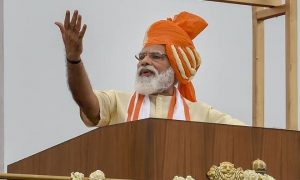Your investment goals keep changing with time. As you come close to your retirement, your financial priorities change significantly. A senior person is likely to invest in safer products and schemes where returns are good enough to handle regular expenses. However, senior citizens today have many options for investment. There are government and private schemes elderly can find useful to generate decent returns.
Here are some investment options for senior citizens to maximise their income.
Senior Citizens Saving Scheme (SCSS)
SCSS is a government-backed investment scheme for senior citizens. If your age is 60 or above, you can invest to earn an interest of 7.4% pa along with the tax deduction benefit u/s 80C. This scheme has a tenure of 5 years that can be further extended by 3 years at the time of maturity. You can invest a maximum of up to Rs 15 lakh in SCSS. The interest earned on SCSS is taxable according to the applicable slab rate.
Read More: Sukanya Samridhi Yojana: Invest Rs 250 and get Rs 5 lakh at maturity for girl child’s future
Bank FDs for Senior Citizens
Bank FDs are one of the most popular investment instruments among senior citizens. Most banks offer around .25% to 1% higher interest on senior citizen FDs compared to the regular FD instruments. U/s 80TTB, senior citizen investors can claim tax deductions up to Rs 50,000 against interest income from banks, cooperative banks and post office FDs. Some banks are currently offering an interest of up to around 8.75% on FDs for senior citizens.
You can invest in bank FDs with an interest reinvestment option and get the entire corpus back in your account on maturity, or you can choose to get the interest credited in your bank account every month and get the invested principal bank in your account on maturity. Bank FDs usually offer a fixed interest rate on FDs but some banks also offer FDs with floating rates of interest. If the interest rate is expected to go up during the investment tenure, you may opt for a floating rate FD and if the interest rate is expected to fall in the near future you may go for a fixed interest rate FD option.
Sometimes senior citizens require urgent liquidity, but they don’t want to break their investment before maturity. In such a situation they can get a loan against FDs at an interest as low as 1 to 2 per cent above the interest applicable on their pledged FD.
Deposits (including principal and interest) in banks up to Rs 5 lakh are covered under insurance by the Deposit Insurance and Credit Guarantee Corporation (DICGC). So, you can spread your investment across different banks if your cumulative deposit (with interest) exceeds Rs 5 lakh to enhance the safety of your funds.
Post Office Monthly Income Scheme (POMIS)
Senior citizens need a regular income out of their corpus to meet their day-to-day expenses. Therefore, they can invest some portion of their corpus into the Post office monthly income scheme (POMIS) that can give them a regular monthly income. Currently, POMIS offers an interest of 6.7% pa. It’s important to note here that interest earned on POMIS is subject to tax at the applicable slab rate.
Read More: Pension plans: Here’s a list of 5 good retirement plans in India
Mutual Fund Schemes
Mutual funds have several options available for investors of all age groups. Senior citizens too have several investment options in mutual funds. They can invest in a Debt fund with a Monthly Income Plan (MIP), Fixed Maturity Plan (FMP), liquid fund, etc. as a low-risk option. Mutual funds can be used for regular investment through SIPs or lump-sum investments.
Investing in mutual funds can help senior citizen investors to enhance their return and to diversify their portfolios to minimise the risk at the same time.
Annuity Schemes
If you are looking for a regular income by investing in a lump-sum corpus, then annuity schemes can be useful for you. An annuity scheme can give you an annual return of around 5.5% to 6.5% of the corpus. Returns offered by annuity schemes may not be very attractive, but you can use them as an alternative when the return offered by other investment products are also at a similar level.
Adhil Shetty, CEO, BankBazaar.com says, “With limited instruments available that offer safe, assured returns, it can be challenging for senior citizens to manage their money. FDs and annuity plans, while being low risk, are not tax efficient, and their returns may not be sufficient to fulfil financial goals. Other instruments, such as Public Provident Fund (PPF) and National Savings Certificate (NSC), have a lock-in period and curtail your access to funds when needed. Mutual funds, however, are an ideal investment that provides safety, tax efficiency and easy access to your money. For short-term investments up to 36 months, liquid mutual funds or short-term debt funds can be ideal options, whereas equity-linked mutual funds are suitable for a long-term investment.”
Senior citizens should adhere to their post-retirement financial plans and invest accordingly. Avoid putting your money into very high-risk financial investment products. Diversify your investment to generate maximum returns available to you.





































